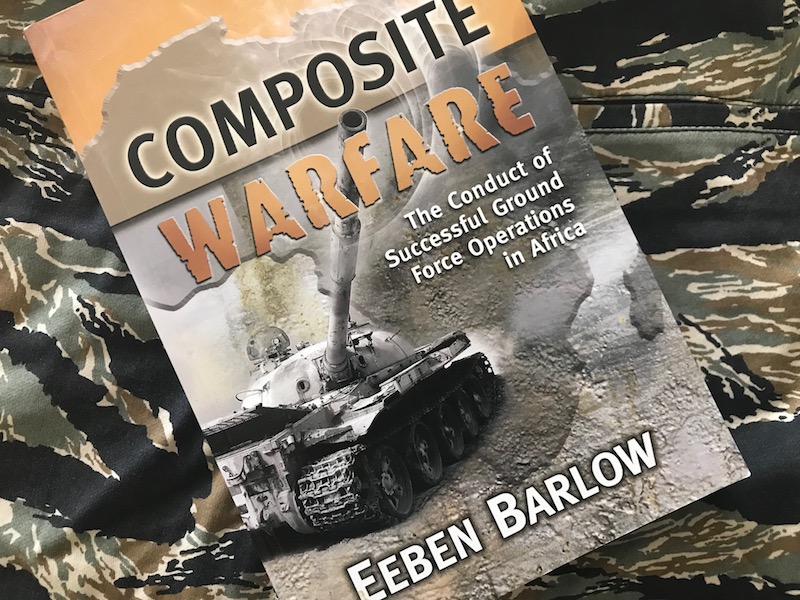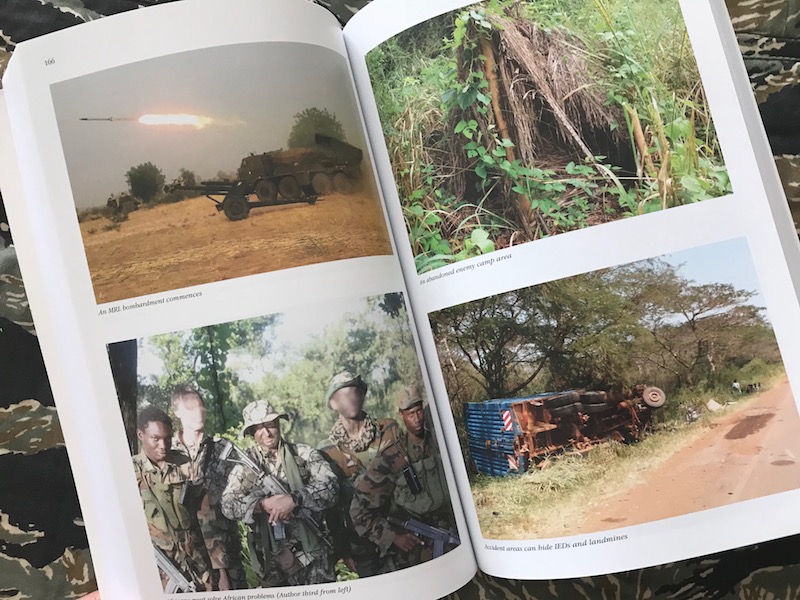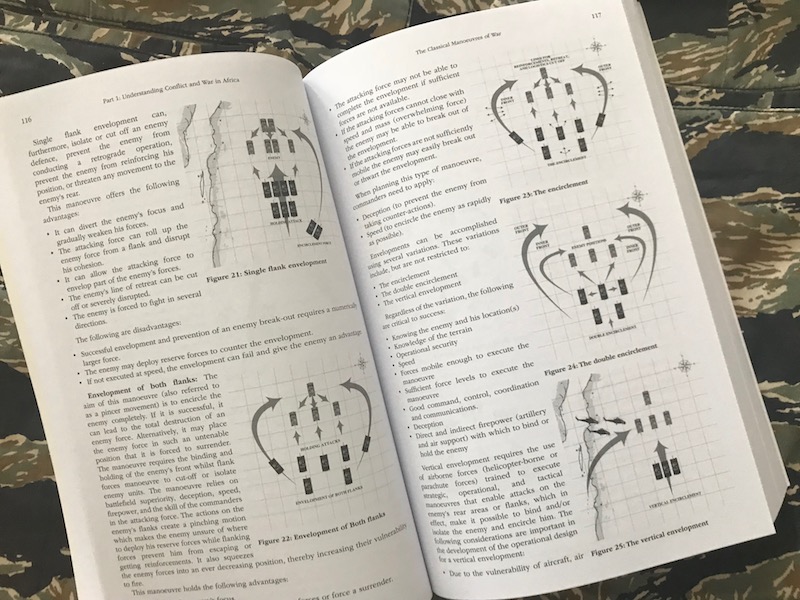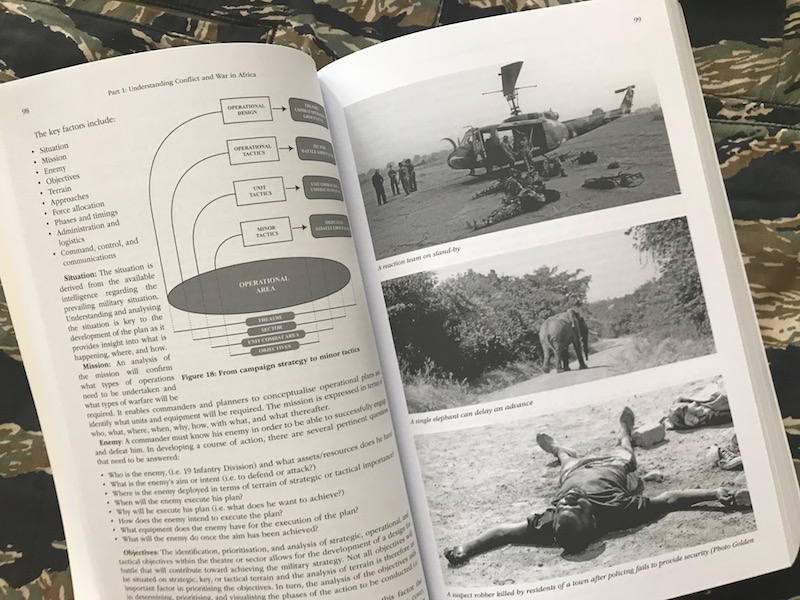Get the weekly SPARTANAT newsletter.
Your bonus: the free E-Book from SPARTANAT.

Composite Warfare - How to Lead War in Africa
The defense industry shifted focus from hardware to terrorism post-9/11. Eeben Barlow, founder of EO and STTEP, offers insights on warfare in Africa in his book "Composite Warfare." His practical approach is a valuable resource for military history enthusiasts and special unit soldiers engaged in FID. Barlow highlights the importance of cultural understanding in training African armies to avoid repeating mistakes.
After September 11, 2001, the defense industry underwent a significant change: suddenly, the focus shifted from the hardware of the Cold War era, such as tanks and fighter jets, to the world of terrorism and counterinsurgency. With this new paradigm came wave after wave of self-proclaimed experts, clueless academics, and hucksters trying to sell garbage to the defense department. This trend continues to this day, although it has shifted into the even more nebulous realm of cybersecurity, which is even better for contractors, as the 60-year-old men running the Pentagon know nothing about computers. The situation in the U.S. Department of Defense is so dire that when you encounter an "expert" who calls themselves a "COINista" (note: a member of the lobby that aims to teach the US Army how to fight Counterinsurgency), not only should you turn around and walk away, you should run. These are the very people responsible for why the U.S. is still fighting the same war in Afghanistan today as it was 16 years ago.
As a Contractor in the Fight in Africa
One individual I have always admired because they represent a true success story is Eeben Barlow. After serving in the South African military as an infantry pioneer and in special forces, Barlow founded a private military company called "Executive Outcomes." EO pushed back UNITA in Angola for the democratically elected government before defeating the barbaric Revolutionary United Front in Sierra Leone. Today, Barlow is the chairman of STTEP, a PMC company that has taken the fight directly to Boko Haram. Strangely enough, it was the United States government that exerted pressure on host governments to remove Barlow's men - just as they began to make headway against anti-government forces.
 With his practical background in counterinsurgency and unconventional warfare, Barlow recently published a book titled "Composite Warfare." It is a manual for warfare in Africa, written by a man who has experienced it firsthand. Barlow emphasizes his Africa-centric approach, avoiding over-philosophizing in the style of political scientists, doctrine authors, and supposed COIN experts. He has written a book that specifically focuses on warfare on the African continent; with its simple language and no-nonsense approach to a topic that is often dealt with in a very convoluted manner in military literature, this book provides a rewarding read for any reader interested in military history.
With his practical background in counterinsurgency and unconventional warfare, Barlow recently published a book titled "Composite Warfare." It is a manual for warfare in Africa, written by a man who has experienced it firsthand. Barlow emphasizes his Africa-centric approach, avoiding over-philosophizing in the style of political scientists, doctrine authors, and supposed COIN experts. He has written a book that specifically focuses on warfare on the African continent; with its simple language and no-nonsense approach to a topic that is often dealt with in a very convoluted manner in military literature, this book provides a rewarding read for any reader interested in military history.
 "Composite Warfare" extensively explores appropriate force structures, explains reconnaissance, movement, mobility, airpower, intelligence utilization, withdrawal movements, the development of military strategies, and much more. Barlow approaches warfare in Africa with a cultural appreciation that contrasts with the vague approach often used by U.S. Special Forces who, for simplicity, mirror their own unit structure in the counterparts of the host countries they train. Therefore, the United States often trains foreign units with tactics straight from the Ranger Handbook - tactics that do not work for indigenous forces.
"Composite Warfare" extensively explores appropriate force structures, explains reconnaissance, movement, mobility, airpower, intelligence utilization, withdrawal movements, the development of military strategies, and much more. Barlow approaches warfare in Africa with a cultural appreciation that contrasts with the vague approach often used by U.S. Special Forces who, for simplicity, mirror their own unit structure in the counterparts of the host countries they train. Therefore, the United States often trains foreign units with tactics straight from the Ranger Handbook - tactics that do not work for indigenous forces.
Training without cultural understanding does not work
In a previous SOFREP interview, Eeben Barlow explained that "poor training and bad advice, the lack of strategy, the influences of very different tribal affiliations, ethnicity, religion, languages, and cultures, altogether simultaneously without understanding the conflict and the enemy" are essential features of Western training for African armies. "Much of this training focuses on decorating a shop window, but when you look through the window, the room is empty," says Barlow.
"Composite Warfare" is suitable for readers studying military history and strategy, as well as for soldiers in special units actively engaged in conducting Foreign Internal Defense (FID). Although the book is particularly helpful for those serving in African armies, "Composite Warfare" undeniably has the potential to become a groundbreaking work on modern warfare in Africa. Let's hope that Barlow's lessons are learned and internalized so that we do not repeat the same mistakes in Africa for another half a century.
Eeben Barlow's Blog: http://eebenbarlowsmilitaryandsecurityblog.blogspot.co.at
 "Composite Warfare" by Eeben Barlow, 535 pages, 2016, 30 Degree South Publication - the best way to get the book is directly through www.warbooks.co.za
"Composite Warfare" by Eeben Barlow, 535 pages, 2016, 30 Degree South Publication - the best way to get the book is directly through www.warbooks.co.za
SPARTANAT is the online magazine for Military News, Tactical Life, Gear & Reviews.
Send us your news: [email protected]
Ad
similar
Get the weekly SPARTANAT newsletter.
Your bonus: the free E-Book from SPARTANAT.


